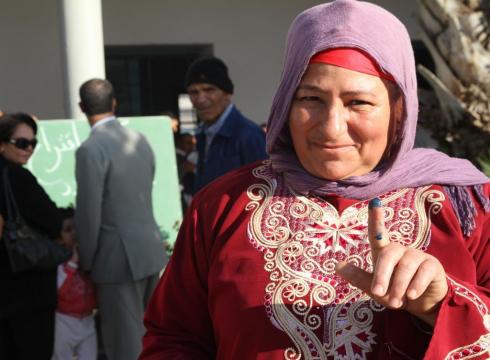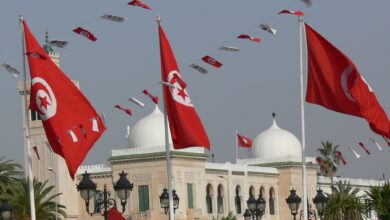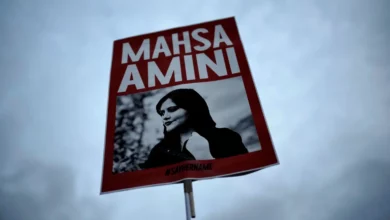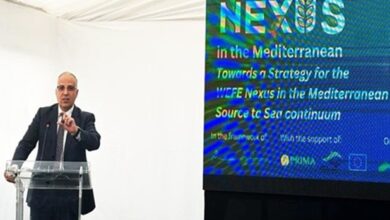
The Islamist Ennahda Party’s election victory in Tunisia has come to mean many different things. For outside observers wary of how the “Arab Spring” might reshape regional politics, their victory signals a trend that will allow more conservative elements in Libya and Egypt to follow suit and succeed to power. For others, the victory is a positive sign that political Islam in the region has become “moderate” and will embrace democracy.
But for women’s rights activists in Tunisia, the victory is a worrying sign that their battle for equality has suddenly become much more difficult.
Days after Tunisia’s historic 23 October elections for a constituent assembly, tasked primarily with writing a new constitution, Tunisian feminists held an emergency meeting at Tunis’s feminist university to discuss strategic options.
“Our conviction now is that we have to fight for the preservation of the women’s rights that were included in the previous constitution,” says Salma Hajri, a physician and member of the Tunisian Association of Democratic Women, or ATFD by its French acronym.
Ennahda, which bills itself not as an Islamist party but as a party “in reference to Islam,” won roughly 40 percent of the vote and took 89 out of 217 seats in the new assembly, three times more than their closest opponents. The victory has set off alarm bells for many women’s rights activists who are concerned that instead of pushing to achieve legal parity, they will now be forced to defend the rights that Tunisian women have already won.
Tunisian women enjoy relatively strong legal protection in comparison to neighboring countries. The Code of Personal Status, promulgated in 1957 by Tunisia’s first president, Habib Bourguiba, abolished polygamy, created stricter divorce laws aimed at protecting women and improved women’s access to higher education. Subsequent amendments to the code have further bolstered women’s rights.
However, Tunisia is not a constitutionally secular state, and women’s rights are still subject legally to a reading of Islamic law in one particular and important case: inheritance. Tunisia’s inheritance law, based on Islamic Sharia law, grants the greater share of inheritance to male heirs. ATFD saw such Islamic influence over the law as a threat to women’s rights and are concerned about greater reliance on Sharia following Ennahda’s win. “Feminism is really completely the opposite of the philosophy and conviction of the Islamists,” Hajri says.
On 2 November, hundreds of women claiming to be “independent” of any political bloc marched in front of government offices in Tunis’s Kasbah district, chanting: “The Code of Personal Status is a right, not a privilege.” The day that the constitutional assembly first took its seats on 22 November, women’s rights activists were among many protest groups that also assembled to make their voice heard.
For their part, Ennahda members, who during the election campaign often repeated that they will protect and even improve the rights enshrined the Code of Personal Status, believe that Islamism and feminism go hand in hand and reaffirm that some laws regarding women should accord with Sharia.
“I think in some cases – in marriage, divorce – we will refer to Sharia,” says Jawhara Ettiss, a 26-year-old English teacher and Ennahda member from the southern region of Tatouine who won a seat in the constituent assembly. “If we go to inheritance, yes in Islam there is a verse that says that when [children] inherit from their father, then the male will have two shares and the female just one share. If I close my eyes to all other verses and just focus on this particular verse, then it’s unjust. But if I read other verses then I see that if there is an injustice here, it is voided in another field.”
Suad Abdul Rahim, a former union leader and the only female Ennahda candidate who does not wear a hijab to win a seat as the head of the party list, says that the Code of Personal Status will be improved.
“Certain points will not be modified, for example the item of polygamy. The code will continue to limit marriage to only one wife,” says Abdul Rahim, who represents the second electoral district of Tunis. “For example, one item that will be changed is in regard to the rights of women over power of attorney in cases of child adoption” and other issues that are likely to avoid controversy.
Ettiss believes that the debate over the proper role of secularism is rooted in a Western context and is misplaced in an Islamic context.
“When we say secularism, the separation of church and state, it’s a separation between church and state, not Islam and state,” she says. “In Ennahda, we are for a civil state, not a religious state, like Iran. But at the same time, we don’t believe in a civil state that is at war with religion, a secular state or a laic state like in France, for example, preventing people from wearing the [Islamic] veil, the right to practice their own religion.”
Critics of this new brand of Islamism insist that women’s rights, along with other human rights, can only be guaranteed by a constitutionally enshrined secular system. “If you are really looking at the Turkish model, put not only laicite [secularism] but equality between men and women, even in inheritance, in the constitution,” says Mariam Bourguiba, a losing candidate for the economically liberal Afek Party and the granddaughter of Habib Bourguiba.
Bourguiba points out that Ennahda members have made contradicting statements regarding what role religion should play in government. “I suspect they have very different factions in their own groups,” she says.
But Ettiss counters that it is natural for any party to have some divisions within its ranks.
“There is a debate within Ennahda. We’re not like puppets, who all have the same way of thinking,” she says.
Many have accused Ennahda of using “doublespeak,” or using one set of rhetoric for the media to show a “moderate” face, and another, more conservative, type of rhetoric for its party base.
“We want to believe what they said during this period of the campaign, but we also know that there are different forces inside Ennahda, and there are some that want to include Sharia in the constitution,” says Hajri. “This will be the main fight of ATFD: to ensure that Sharia is not included in the constitution.”
However, some Tunisians believe the fight over a constitution is a sideshow when Tunisia faces real economic problems.
“The real debate is how to get Tunisia in line with world standards, then you can deal with social issues,” says Yasmine Boughzala, a professor of management at Sousse University. “I think the debate over the constitutional rights of women is taking us backwards 50 years, and will have a negative impact on our country.”
At a press conference days after the election, Ennahda leader Rachid Ghannouchi reiterated that his party’s attitude towards women is not traditionally Islamist.
“We would prefer to see non-veiled women and discuss and argue with them than veiled women who were forced to wear the veil,” Ghannouchi said, reiterating that choice of dress is a “personal matter.”
Ennahda drew great media attention by running Suad Abdul Rahim, who does not wear a head scarf and is not a member of the Ennahda organization, as a candidate. However, some Tunisian women believe that her candidacy is evidence that Tunisian women were used as political pawns during the election campaign.
“We saw the instrumental application of women in these campaigns,” says Asma Benhassin, a 25 year-old graduate student of Linguistics at the University of Tunis. “Ghannouchi used an unveiled woman candidate, while [Communist party leader Hamma] Hammami used a veiled women candidate, and these moves were publicized using Facebook.”
Benhassin herself says she decided not to vote for the Communist partly because she disagreed with this tactic.
Abdul Rahim, for her part, believes that fears over Ennahda’s stance towards women are leftovers of the former regime’s decades of fear mongering aimed at demonizing the opposition.
“This is a phobia created by the old dictatorial regime because it was afraid of Ennahda, so it accused Ennahda of terrorist actions. But that was not true,” she says. “After the revolution, it is the other competing parties that have said this. But it isn't true. We say in our program that we are not for polygamy, we’re for women's freedom, we’re for women's employment. We’re not for forcing women to wear the hijab. Women are free to wear any style of dress.”
She says she will push hard for women’s rights as a member of the newly elected constituent assembly. “As a woman, I would like women to be present in all structures, administrative, political, unionist – a real presence,” she says.




